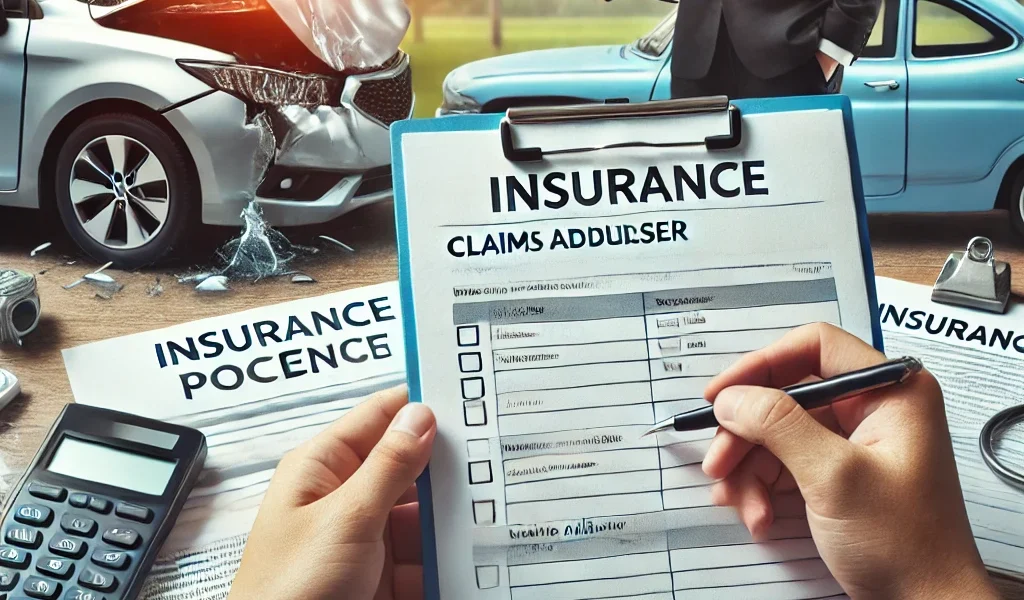Car accidents can be stressful, but knowing how to handle your car insurance claim efficiently can make the process much smoother. From documenting the incident to communicating with your insurance provider, every step plays a crucial role in ensuring a hassle-free claim process.
In this guide, we will walk you through everything you need to do after an accident to file a car insurance claim efficiently, helping you get the best possible outcome.
1. Prioritize Safety First 🚗⚠️
Before dealing with insurance claims, your safety and the safety of others should be your top priority.
- Move to a safe location if possible, but don’t leave the scene.
- Turn on your hazard lights to alert other drivers.
- Check for injuries and call 911 if medical assistance is needed.
- Call the police to report the accident, especially if there are injuries, damages, or disputes.
2. Gather Essential Information 📸📄
Having accurate details about the accident is crucial for your claim. Here’s what you should collect:
Driver & Vehicle Information:
✅ Names, addresses, and contact details of all involved drivers.
✅ License plate numbers and vehicle descriptions.
✅ Insurance company names and policy numbers of other drivers.
Accident Details:
✅ Date, time, and location of the accident.
✅ Road and weather conditions.
✅ Names and contact details of witnesses.
Photos & Videos:
✅ Take clear photos of the accident scene, vehicle damages, license plates, and any visible injuries.
✅ Capture street signs, traffic signals, and road conditions.
✅ If possible, record a video explaining how the accident happened.
3. Notify Your Insurance Provider 📞
Once you have gathered all necessary information, contact your insurance company as soon as possible. Many insurers have a 24/7 claims helpline for immediate assistance.
When reporting the accident, provide:
- Your policy number.
- A clear description of what happened.
- The details of the other driver and their insurance.
- Photos or videos of the damage.
💡 Tip: Stick to the facts and avoid admitting fault before investigations are completed.
4. File a Police Report (If Required) 🚔
In many cases, a police report can help speed up the claims process. The officer will:
- Assess the accident scene.
- Collect statements from involved parties and witnesses.
- Provide an official accident report, which may be required by your insurer.
5. Understand Your Insurance Coverage 📜
Before filing a claim, it’s essential to understand what your car insurance policy covers. Some common coverage types include:
Collision Coverage
Pays for damage to your car from an accident, regardless of fault.
Liability Coverage
Covers damages to the other driver’s car and medical expenses if you’re at fault.
Comprehensive Coverage
Covers non-collision damages like theft, fire, or weather-related incidents.
Personal Injury Protection (PIP)
Covers medical expenses and lost wages for you and your passengers.
💡 Check your deductible (the amount you pay out of pocket) before filing a claim.
6. Work with the Insurance Adjuster 🤝
After you file a claim, your insurance company will assign a claims adjuster to investigate the accident. They may:
- Inspect vehicle damages.
- Review accident reports and evidence.
- Determine the payout amount.
Cooperate fully with the adjuster and provide all necessary documents to avoid delays.
7. Get Your Car Repaired 🔧
Depending on your policy, you may:
- Choose a preferred repair shop recommended by your insurer.
- Select your own mechanic, but check if your insurer covers it.
- Request a rental car if your policy includes rental reimbursement.
💡 Pro Tip: Get multiple repair estimates to ensure you’re getting a fair deal.
8. Monitor the Claim Status 📑
Stay in touch with your insurance company and track your claim’s progress. If delays occur, politely follow up for updates.
✅ Ask for a timeline on claim approval and payment. ✅ Keep all communication records (emails, messages, and call logs). ✅ Understand your rights if the claim is denied—appeal if necessary.
9. Avoid Common Mistakes 🚫
Mistakes during the claims process can lead to delays or claim denials. Avoid these errors:
❌ Not reporting the accident immediately – Insurers may deny late claims. ❌ Admitting fault at the scene – Let the insurance company and authorities determine responsibility. ❌ Providing incomplete information – Missing details can slow down your claim. ❌ Accepting the first settlement offer – Negotiate if necessary. ❌ Not reviewing your insurance policy – Know your rights and coverage.
10. Consider Legal Assistance if Needed ⚖️
If the claim is complicated or disputed, consider consulting a car insurance lawyer. They can help with:
- Denied claims or unfair settlements.
- Severe injuries or medical bills.
- Disputes over fault determination.
💡 Tip: Most lawyers offer a free initial consultation to assess your case.
Final Thoughts: Stay Prepared for Future Claims 📝
Accidents are unpredictable, but being prepared can make the claims process smoother. Here’s how: ✅ Keep a claims checklist in your car.
✅ Save your insurer’s contact information for emergencies.
✅ Review your policy annually to ensure adequate coverage.
✅ Drive safely to maintain a good record and avoid claim hassles.
By following these steps, you can handle car insurance claims efficiently, legally, and stress-free. Stay informed, stay prepared, and ensure you get the coverage you deserve!
📢 Have you ever filed a car insurance claim? Share your experience in the comments! 🚘💬




